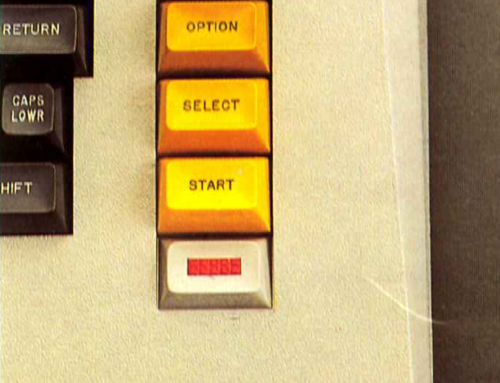I remember the first time I realized that I was not my thoughts. This might not sound like a big deal to those of you who grew up understanding that the voice in your head is just that—a voice, not your voice. Me, well, I didn’t really know that. I honestly believed that when those thought bubbles rose up—complete with exclamation marks and sound effects, like in the comics—they were earnest attempts by my brain to direct my actions.
By the by, this isn’t a terribly healthy belief. Have you ever tried to act on all the shit your brain throws at you on a typical day? At any given moment, I’d be rushing to respond to a whole host of competing imperatives; berating myself for some past action that failed to yield its intended results; worrying about how busy I was; and reacting to whatever external events kept getting tossed my way. My thoughts were nothing but a jumbled mass of endless noise constantly yelling for attention. I was, quite literally, driving myself crazy.
Unexpected respite
My first moment of awakening happened on one such typical day. I was running around trying to get through my errands in time to get home to make dinner. I had just parked my car at the mall, where I needed to make a deposit at the bank. I was walking across the parking lot when the noise in my head just suddenly stopped. I have no idea why. I just know that it was so foreign to me that I literally stopped cold in the middle of the parking lot and just stood there, keys dangling from my fingers, mouth open, brain empty.
It was an entirely unexpected—and previously unimaginable—moment of grace. Instead of being totally caught up in my thoughts, I was suddenly soaring above them—like a bird or a cloud—watching them from a distance. I don’t want to make it sound like some angelic visitation, though. It probably only lasted for a few seconds. Yet, in those seconds, I suddenly realized that I was not my thoughts. They were separate from me. They were independent entities. Which meant that I didn’t need to listen to them.
The slow walk to awake
I wish I could say I became totally enlightened as a result of that moment. I didn’t, of course. Longstanding habits take time to break, and that’s true whether those habits are physical or mental. I’d been thinking in a certain way my entire life. Changing that pattern of thinking would take time.
What that moment gave me, however, was a realization that change was possible. And it sent me on a quest for that change. Because I’m a believer in the power of words, I began to seek out books that would explain what had happened to me. One such book that crossed my path was written in 1954 by U.S. Andersen, called Three Magic Words. Although its language was a bit archaic, and some of the themes didn’t resonate with me, that book gave me a frame of reference for understanding the distinction between my Self and my thoughts.
There’s a short meditation after each chapter that really honed in on these themes. In the sixth meditation, for instance, it says: “I am not body; I am not thought; I am not experience; I am not the past nor the present nor the future. I simply am. Across my consciousness comes a constant procession of thoughts and I observe them.” And there it was, in writing: an explanation of what had happened to me.
Through readings and meditations like these, I slowly began to transcend my thoughts. I can’t say that it was a seamless process, or even that it’s really done. But I do know one thing: those initial efforts to create space in my head are what put me firmly on the path towards becoming both conscious and carefree. I wander that path every day now, sometimes revisiting well-trodden routes, sometimes losing my way, sometimes hacking through dense foliage in search of a clearing. It’s made me realize that, while waking up is hard to do, it may be life’s only worthwhile pursuit. Because the farther away I get from my thoughts, the closer I get to divinity.





Loved that article. Nicely written.
thanks Keith!
I love that I am not my thoughts. Terrific concept! Thanks so much.